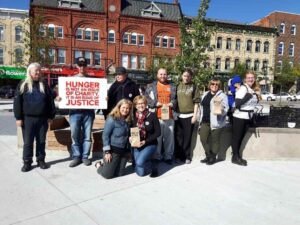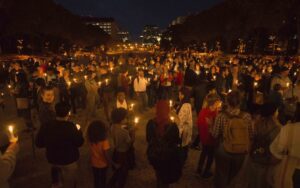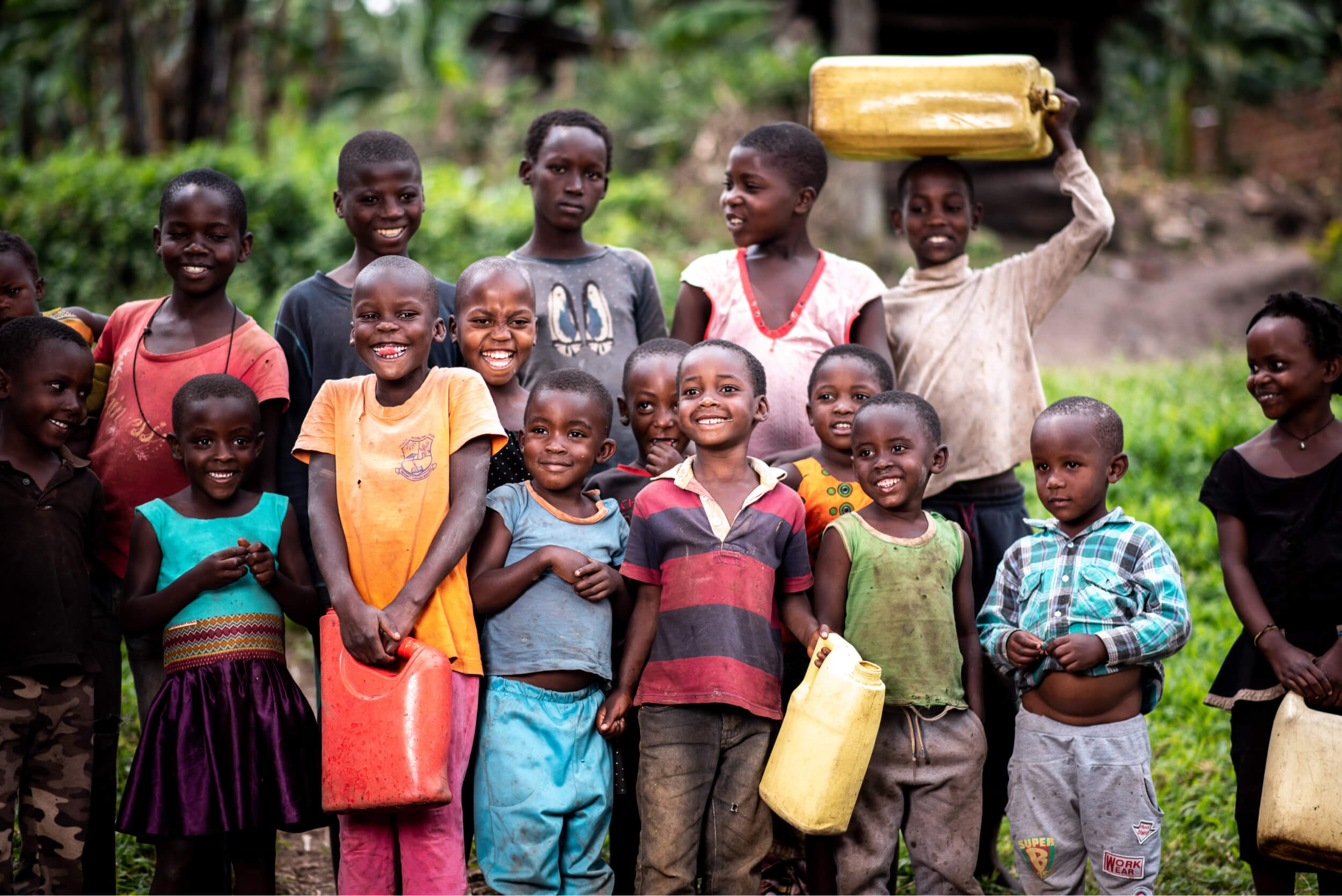Kentro Connection
We’ve been trained for this! How Christian formation has been preparing you to advocate for justice
By Natalie Appleyard, Citizens for Public Justice
Kentro members (and I daresay most Christians) probably don’t need much convincing that caring for the poor and oppressed is a calling consistent with our Christian faith. Churches, individual Christians, and other Jesus-centred groups have a long history of serving, giving to, and walking alongside those struggling to meet their basic needs within and beyond our own communities.
Many who live out these faith tenets also come to recognize that direct service needs to be accompanied by systemic advocacy. It’s one thing to serve people in need directly; it’s another to work on the systems that put people in that position in the first place.

However, I’ve found that advocacy can feel a bit daunting to many—let alone government relations! Maybe you’ve found yourself thinking that advocacy is not for you. But, friend and fellow member of the body of Christ, let me encourage you—we’ve been trained for this!
As followers of Christ, there are all kinds of ways you have been prepared to play a unique and much needed role in advocating for justice. I’d like to consider a few examples with you.
Loving our neighbours and all of creation
Loving our neighbours as ourselves is likely the first reason that springs to mind when thinking about why Christians and churches are engaged in both charitable works and advocacy. We are asked to consider how we can possibly say we love God—whom we can’t see—if we don’t love our brother or sister, whom we can see (1 John 4:20). We are also taught that in the beginning, God declared all creation “good.” Here, too, we can find inspiration to care for creation, as we read of the ways it “declares the glory of God” (Psalm 19:1) and even that it reveals God’s invisible qualities (Romans 1:20).
The theological concept of the imago dei is a Jewish and Christian teaching that people are made in the image of God, with inherent value. Many have found parallels between this theological concept and the notion of human rights. I would say this has less to do with the language of entitlement as it does with our responsibility to uphold one another’s inherent dignity and worth; Hebrew and Christian scriptures contain many calls to seek justice and resist oppression, to stand with the poor, feed the hungry, clothe those without a coat—in short, to ensure that others are not going without their basic needs while others are made rich through exploitation and greed. Notably, these calls are specifically about justice—not just acts of charity. People of faith are expected to have systems of caring for one another, upholding one another’s dignity, and to condemn those that exploit and oppress. Consider this passage in Isaiah:
10 Woe to those who make unjust laws, to those who issue oppressive decrees, 2 to deprive the poor of their rights and withhold justice from the oppressed of my people, making widows their prey and robbing the fatherless. 3 What will you do on the day of reckoning, when disaster comes from afar? To whom will you run for help? Where will you leave your riches? Isaiah 10:1-3
Throughout Hebrew and Christian scriptures, the writers do not mince words about the imperative of showing love and acting justly towards others.
Speaking truth to power and practicing repentance and lament
When prophets, Jesus the Christ himself, and followers of Jesus stood up for what is right and called out corruption and oppression, they also called for repentance and lament. These are necessary steps toward wholeness, freedom, and reconciliation with God and with other people.
They did not shy away from letting those in power know that their oppressive acts were unacceptable and bringing about their own ruin. They made it plain that the only way for both those in positions of power and their communities to thrive was to repent and do away with injustice. And often, along with their scathing critiques, they offered the promise of blessings when this was accomplished.
One of my favourite examples of this is found in Isaiah 58:6-10:
6 “Is not this the kind of fasting I have chosen: to loose the chains of injustice and untie the cords of the yoke, to set the oppressed free and break every yoke? 7 Is it not to share your food with the hungry and to provide the poor wanderer with shelter—when you see the naked, to clothe them, and not to turn away from your own flesh and blood? 8 Then your light will break forth like the dawn, and your healing will quickly appear; then your righteousness will go before you, and the glory of the Lord will be your rear guard. 9 Then you will call, and the Lord will answer; you will cry for help, and he will say: Here am I.
“If you do away with the yoke of oppression, with the pointing finger and malicious talk, 10 and if you spend yourselves on behalf of the hungry and satisfy the needs of the oppressed, then your light will rise in the darkness, and your night will become like the noonday.

There’s a good reason that repentance and lament are integrated into our worship, our relationships with God and with one another, and in our rituals, liturgy, and ceremonies. They’re valuable skills and perspectives that we can share with others as we work together towards a better, more just future for all. Our training in advocacy is not about doom and gloom. Repentance and lament are hard and uncomfortable, but they bring peace and joy for both the oppressor and the oppressed.
Hope and radical imagination
Even imagining this better future is something our Christian formation has been training us for – and it’s not something we should take for granted that everyone has experience with. Our Scriptures, celebrations, songs, and spiritual practices are full of radical imagination, with many describing this future hope as God’s “upside-down kingdom” (or “kingdom” as some prefer), in which the last are first, and the leaders are the servants of all, and all can enjoy God’s good creation in right relationship. What’s more, our Christian formation teaches us that this isn’t just some hoped-for idyllic future; it’s a return to the unity we once had with God, with one another, and with all of creation.
We have practice in the language of hope through our celebration of Christ’s incarnation in Jesus. Advent is a season, a practice, of waiting for our hope to come, and a remembrance of how our hope has come already. In Luke 17:21, Jesus says the kingdom of God is among us (or within us, depending on the translation). I love the way it’s put in an old Switchfoot song: Jesus taught us a “new way to be human.” Much of our spiritual formation is about learning how to live into this hope today, as well as into the future. Living a life that embodies this hopeful conviction is in itself a form of advocacy. Never discount the power of a faithful witness who gives others a glimpse of what is possible. I know my own heart and mind have been softened to the Spirit’s work through the persistent testimony of others who showed me a better way, even throughout years of my resisting it. They persevered in hope, and I am forever indebted to them. Some of these people are dear loved ones, while others are people I have never met, but whose stories were shared generously, sometimes painfully, in hope that they would help others change and help the world change with us.
I’ll admit that advocating for systemic change can leave you feeling cynical. But I’m so grateful for this antidote of real and all-encompassing hope: a hope that encompasses lament, names the destruction wrought by injustice, honours the dignity and worth of those experiencing this violence, and does not turn away. There is an urgency in the call for repentance. But it is also a long game. While we recognize the possibility for immediate, substantive change when people choose to act justly now, we also know that this is a hope that has been shared across generations and that will continue beyond our own time. It is a hope and a work shared by a “great cloud of witnesses” (Heb. 12:1).
Working in unity & diversity
My final example to share with you of how our Christian formation has been preparing us for advocacy all along draws inspiration from 1 Corinthians 12. In this letter, Paul describes how the Church is like a body, with each part playing a different role, all of which are equally necessary. This lesson about working in unity and diversity is invaluable for finding our place in advocating for justice.
4 There are different kinds of gifts, but the same Spirit distributes them. 5 There are different kinds of service, but the same Lord. 6 There are different kinds of working, but in all of them and in everyone it is the same God at work. 7 Now to each one the manifestation of the Spirit is given for the common good. 1 Corinthians 12:4-7
I think many people shy away from the notion of advocacy because they have a very limited picture of what it is. Not everyone is gifted to be the person with a megaphone leading chants at a rally (thank you, Jesus)! Not everyone is gifted to be a policy analyst researching and proposing legislation (Amen)! Not everyone is gifted to be a politician (praise be)! But our Christian faith and practices teach us that each of us is uniquely created, gifted, and situated to be a light where we are. Maybe for you that looks like caring for someone’s child so they can participate in an event. Maybe it looks like being the shoulder to cry on for someone who is feeling the crushing weight of injustice, validating their dignity and worth. Maybe it looks like connecting people to learn or act together, or even just asking questions about why things are done the way they are.
Paul’s admonition to honour the diverse roles of each member of the body and to desire gifts to serve the common good culminates in a beautiful reminder of what it’s all about:
“And yet I will show you the most excellent way…”
Love. As followers of Christ, this is the greatest gift we have been given to share. And it is the greatest, most necessary criteria for effective advocacy, centred on people and relationships. We have been trained (and are being trained yet) to live into the full assurance that each of us belongs in the beloved community. Each of us is to love each other as our selves, to see the image of God in each other. And in the words of Dr. Cornel West, “justice is what love looks like in public.”
If you’re interested in exploring what advocacy looks like for you and your gifts, please reach out. You’ve been training for this!


Collaboration is at the center
Organizations can’t fight poverty on their own. Get connected. We are stronger together.